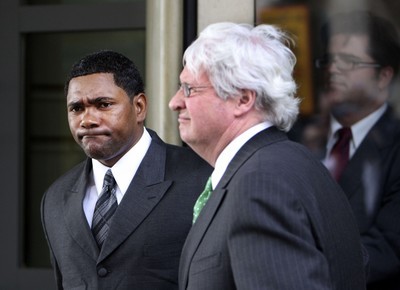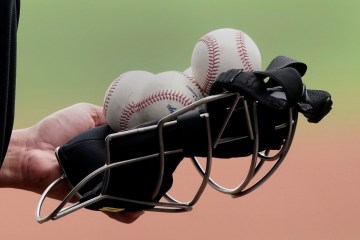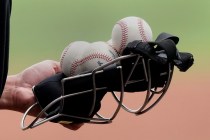Baseball’s juicers need to be outed
Miguel Tejada had a few drinks the night before he appeared in court to confess his sins.
Who could blame him? Truth is, he didn't admit to much when he copped his plea in federal court.
Sure, he bought human growth hormone while doing the kind of things shortstops don't normally do for the Oakland Athletics. And, yes, he lied to investigators about it.
But use the stuff? That's almost as preposterous as thinking Alex Rodriguez was shooting up in places other than Texas.
We might never know the truth about A-Rod, who, like Mark McGwire, seems to have selective memory about the past. The same goes for Tejada, though at some point common sense has to win out and assumptions have to be made.
What we do know is we'll never look at either player again without wondering how much was real and how much was the work of a mad chemist. Our suspicions will rise every time they go to the plate or hit a home run.
Come to think of it, we'll feel that way about every player. With the game's biggest stars roped in, everyone is suspect now.
These are nervous times in baseball, when every week seems to bring a new allegation about the greatest players of our time. Two decades of management and the players' union ignoring the use of steroids has shaken the game to its core and stripped it of many of its fans.
Pitchers and catchers report this week, and some of them should be nervous, too. A list is floating around of 104 players who tested positive for steroids in 2003, and 103 of them have to be lying awake at night wondering if they will be the next one to be outed.
If the list doesn't get them, their fellow players might. Tejada didn't get a plea bargain without agreeing to some level of cooperation with investigators, and who knows how much he'll have to say to stay out of prison and avoid deportation.
For years, players assumed the clubhouse code of saying nothing bad about a teammate would keep their secrets safe, and for years they were right. But then investigators started searching, suppliers started turning, and names began surfacing.
Now, everyone except scrawny David Eckstein is suspect, and the way things are going he might start looking over his shoulder, too.
That is not fair to Eckstein or the hundreds of other major leaguers who wouldn't think of abusing their bodies with steroids to gain a competitive edge. They've been mostly quiet so far, but some of them are beginning to understand they are paying a price with their silence.
"Those of us that have never taken anything like steroids or HGH or anything like that, I'd like to know who has," Lance Berkman told the Houston Chronicle.
Berkman could ask Tejada, his teammate on the Astros. Tejada has played on three teams, bought HGH and, if you believe Rafael Palmeiro, was good at giving B-12 shots.
Or he can wait until 11 appeals court judges in California study the question of "the list" and decide whether to allow prosecutors to use it to go after other players. In the meantime, names inevitably will be leaked that will give him an idea of who might have been juicing.
But if Berkman and other players want to know, they don't have to go any further than their own union, which fought steroid testing for years before finally caving in to political pressure and agreeing to the 2003 tests that started it all.
Stand up together and tell the union to stop fighting in court over the test results. Demand that the list of names be made public so that your name can be cleared.
That might seem unfair to the guilty players, who were promised the tests would be anonymous. But it's even more unfair to any player who is clean.
Besides, with A-Rod's outing, all bets are off.
Temporary pain, surely hard feelings, undoubtedly will surface, but the names must be released to remove the cloud over baseball. Players will grow old before Bud Selig and union chief Donald Fehr do anything to protect the integrity of baseball.
It's time the clean players stand up and do what's right for themselves and the game.
Tim Dahlberg is a Las Vegas-based national sports columnist for The Associated Press. Write to him at tdahlberg@ap.org.

















